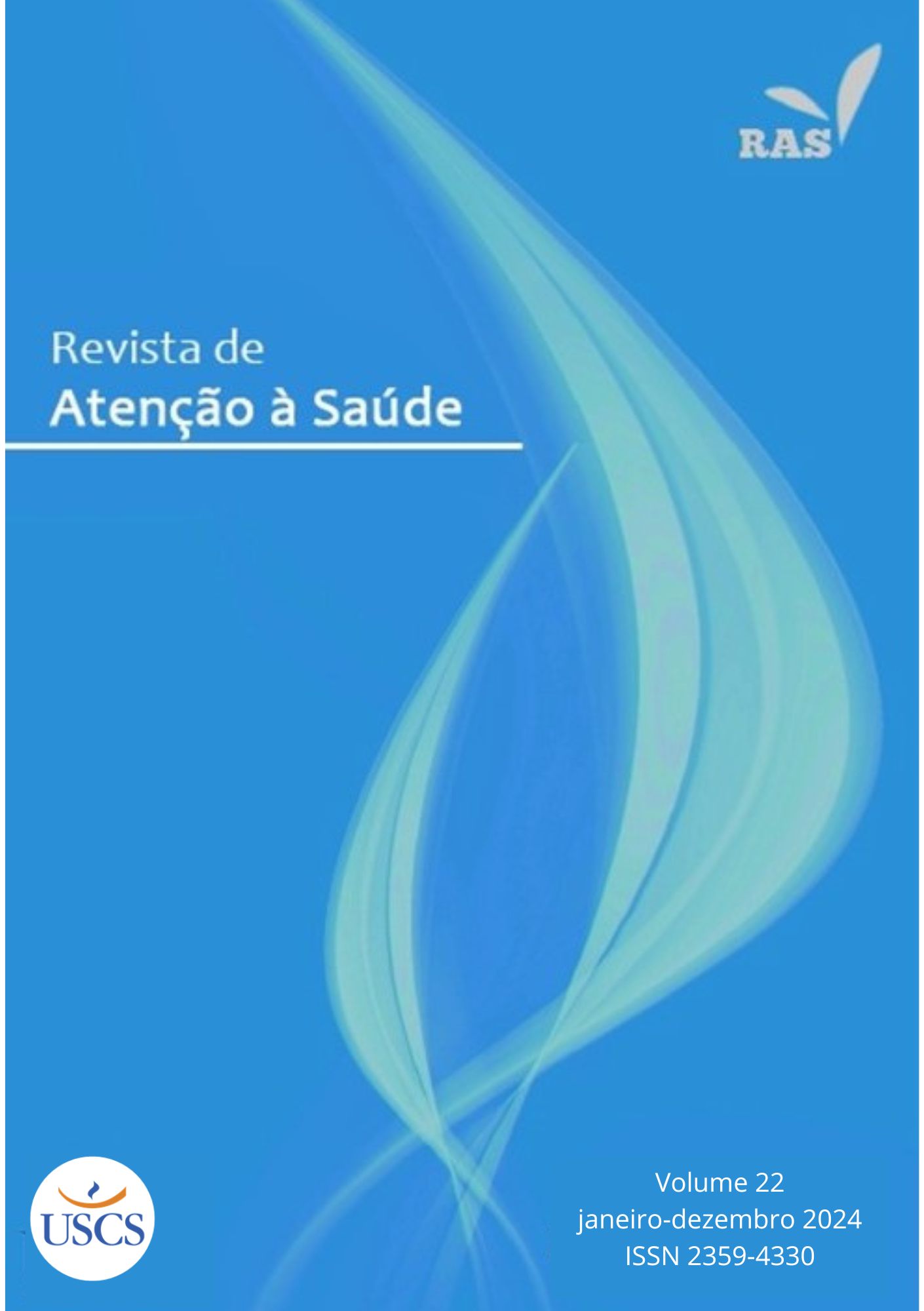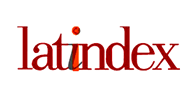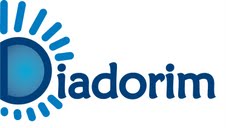The RESPIRATORY MUSCLE TRAINING WITH FLOW INCENTIVE SPIROMETER COMPARED WITH LINEAR RESISTOR: CONTROLLED CLINICAL TRIAL
Respiratory Muscle Training
DOI:
https://doi.org/10.13037/ras.vol22.e20248976Keywords:
Muscle strength, Breathing exercises , respiratory therapyAbstract
Introduction: Respiratory muscle training (RMT) is indicated when the values of maximal inspiratory and expiratory muscle strength are lower than expected, it can be indicated in individuals with normal muscle strength, including athletes, aiming to increase performance. Objective: To verify the effect of Power Breathe® (linear resistor) and Respiron® (linear resistor) on respiratory muscle strength and lung function in adults. Materials and Methods: Randomized and controlled clinical trial carried out with 56 adult participants, both genders, aged 18 to 59 years. The maximal inspiratory and expiratory pressures and lung function were evaluated pre and post-training protocol by spirometry and ventilometry. Participants were divided into three groups: RG (Respiron® group), GPB (Power Breathe®) and GC (control group). Training was carried out for 5 weeks, 3 times a week, using a load of 50% of MIP for both equipment. Results: In the post-protocol intra-group analysis, there was an increase in MIP and MEP in all groups (p<0.05). When comparing MIP and MEP pre and post training between the groups, there was no significant difference (p>0.05), however when comparing the delta (difference between post and pre), it was observed that there was no difference between the group Respiron® and Power Breathe® (p=0.68) and both devices had a greater delta than the control (p<0.01). There was no intra-group and inter-group difference in lung function (p>0.05). Conclusion: Power Breathe® and Respiron® increased inspiratory muscle strength in adults, but did not change spirometric variables.
Downloads
References
Sarmento GJV. O ABC da fisioterapia respiratória. São Paulo (SP): Manole; 2009.
Silva PE, Almeida KMG, Dias VS, Andrade FMD, Almeida MLO. Treinamento muscular inspiratório com incentivador a fluxo Respiron® no pós-operatório tardio de cirurgia cardíaca pode melhorar desfechos funcionais? Um estudo duplo-cego, randomizado e sham controlado. ASSOBRAFIR Ciência. 2015;6(2):43-54.
Shei RJ. Recent advancements in our understanding of the ergogenic effect of respiratory muscle training in healthy humans: a systematic review. Strength Cond. Res. 2018 September; 32(9): 2665–2676.
Huang CH, Martin AD, Davenport PW. Effect of inspiratory muscle strength training on inspiratory motor drive and RREP early peak components. J Appl Physiol. 2003; 94:462–468.
Witt JD, Guenette JA, Rupert JL, McKenzie DC, Sheel AW. Inspiratory muscle training attenuates the human respiratory muscle metaboreflex. J Physiol. 2007; 584:1019–1028.
Enright SJ, Unnithan VB, Heward C, Withnall L, Davies DH. Effect of high-intensity inspiratory muscle training on lung volumes, diaphragm thickness, and exercise capacity in subjects who are healthy. Phys Ther. 2006; 86:345–354.
Laoutaris ID, et al. Effects of inspiratory muscle training on autonomic activity, endothelial vasodilator function, and N-terminal pro-brain natriuretic peptide levels in chronic heart failure. J Cardiopulm Rehabil Prev. 2008; Mar-Apr;28(2):99-106.
Sheel AW. Respiratory muscle training in healthy individuals. Sports Med. 2002; 32:567–581.
Illi SK, Held U, Frank I, Spengler CM. Effect of Respiratory Muscle Training on Exercise Performance in Healthy Individuals. Sports Medicine. 2012; 42(8):707-724.
Lin SJ, McElfresh J, Hall B, Bloom R, Farrell K. Inspiratory muscle training in patients with heart failure: a systematic review. Cardiopulm Phys Ther J. 2012; Sep;23(3):29-36.
Souza E, Terra ELSV, Pereira R, Chicayban L, Silva J, Sampaio-Jorge F. Análise eletromiográfica do treinamento muscular inspiratório sob diferentes cargas do THRESHOLD®IMT. Perspectivas Online [periódico na internet]. 2008; 2(7):103-112. Disponível em https://pdfs.semanticscholar.org/b263/d55fbfc02ad13dca616681331617c29c60a6.pdf [2020 junho 20]
Machado MGR. Bases da Fisioterapia Respiratória: Terapia Intensiva e Reabilitação. 2ª. ed. Rio de Janeiro: Guanabara Koogan, 2018.
Tomich GM, França DC, Diório ACM, Britto RR, Sampaio RF, Parreira VF. Breathing pattern, thoracoabdominal motion and muscular activity during three breathing exercises. Braz J Med Biol Res. 2007;40(10), 1409-17
Liu CJ, Tsai WC, Chu CC, Muo CH, Chung WS. Is incentive spirometry beneficial for patients with lung cancer receiving videoassisted thoracic surgery? BMC Pulmonary Medicine 2019; 19:121.
Agostini P, Singh S. Incentive spirometry following thoracic surgery: what should we be doing? Physiotherapy. 2009;95(2):76-82.
Baranow KV, Silva NM, Moussalle, LD, Kessler A. Inspirômetro de incentivo no pós-operatório de cirurgia torácica: uma revisão sistemática. Ciência & Saúde, set.-dez. 2016; 9(3):210-217.
Carvalho CRF, Paisani DM, Lunardi AC. Incentive spirometry in major surgeries: a systematic review. Rev Bras Fisioter. 2011; 15 (5):343-50.
Manapunsopee S, Thanakiatpinyo T, Wongkornrat W, Chuaychoo B, Thirapatarapong W. Effectiveness of Incentive Spirometry on Inspiratory Muscle Strength After Coronary Artery Bypass Graft Surgery. Heart, Lung and Circulation [periódico na internet] 2019, Disponível em https://doi.org/10.1016/j.hlc.2019.09.009 [2020 junho 20].
Weiner P, et al. The effect of incentive spirometry and inspiratory muscle training on pulmonary function after lung resection. J Thorac Cardiovasc Surg. 1997;113(3):552-7.
Kamble KG, Vishnu Vardhan GD. Effect of threshold inspiratory muscle training versus incentive spirometry in upper abdominal surgeries: a comparative study.
Int J Physiother Res 2019, Vol 7(3):3077-84.
Reis IMM, Pessoa-Santos BV, Basso-Vanelli RP, Di Lorenzo VAP, Jamami M. Efeitos do treinamento com espirômetros de incentivo a fluxo e a volume em indivíduos saudáveis. R. bras. Ci. e Mov 2015;23(2):104-112.
Eltorai AEM, Baird GL, Eltorai AS, Pangborn J, Antoci Jr V, Cullen HA, et al. Perspectives on incentive spirometry utility and patient protocols. Respir Care. 2018 May;63(5):519–31. https://doi.org/10.4187/respcare.05872
Schwieger I, Gamulin Z, Forster A, Meyer P, Gemperle M, Suter PM. Absence of benefit of incentive spirometry in low-risk patients undergoing elective cholecystectomy. A controlled randomized study. Chest. 1986 May;89(5):652–6. https://doi.org/10.1378/chest.89.5.652
Hall JC, Tarala R, Harris J, Tapper J, Christiansen K. Incentive spirometry versus routine chest physiotherapy for prevention of pulmonary complications after abdominal surgery. Lancet. 1991 Apr;337(8747):953–6. https://doi.org/10.1016/0140-6736(91)91580-n
Ferrazeane EP, Kunzler DCH, Gonçalez JC. Espirometria de incentivo: quais as evidências? In: Associação Brasileira de Fisioterapia Cardiorrespiratória e Fisioterapia em Terapia Intensiva; Martins JA, Reis LFF, Andrade FMD, organizadores. PROFISIO Programa de Atualização em Fisioterapia em Terapia Intensiva Adulto: Ciclo 12. Porto Alegre: Artmed Panamericana; 2021, v.2, p.91-114. https://doi.org/10.5935/978-65-5848-502-5.C0004
Brasil. Ministério da Saúde. Conselho Nacional de Saúde. Resolução nº 466/16 sobre pesquisa envolvendo seres humanos. Brasília: Ministério da Saúde; 2016. 24p.
World Health Organization. Global recommendations on physical activity for health. Geneva: World Health Organization; 2010
ATS/ERS Statement on Respiratory Muscle Testing. American Journal of Respiratory and Critical Care Medicine. American Thoracic Society. 2002;166(4):518-624.
Sociedade Brasileira de Pneumologia e Tisiologia. Diretrizes para testes de função pulmonar. J Pneumol. 2002; 28(3):1-221.
Sandri P, Guimarães HP. Manual prático de fisioterapia no pronto socorro e UTI. São Paulo: Atheneu, 2014.
Esteves F, Santos I, João Valeriano J, Tomás MT. Treino de músculos inspiratórios em indivíduos saudáveis: estudo randomizado controlado. Saúde & tecnologia. 2016; 15: 5-11.
Romer LM, McConnell AK. Specificity and reversibility of inspiratory muscle training. Med Sci Sports Exerc. 2003;35(2):237-244.
Weidler J, Kiefer RT. The Efficacy of Postoperative Incentive Spirometry Is Influenced by the Device- Specific Imposed Work of Breathing. Chest 2001; 119:1858–1864.
West JB. Mecânica da Respiração. In: Fisiologia Respiratória, 9ª ed; Porto Alegre: Artmed Editora, 2013. p. 110-146.
Ferrazeane EP, Kunzler DCH, Gonçalez JC. Espirometria de incentivo: quais as evidências? In: Associação Brasileira de Fisioterapia Cardiorrespiratória e Fisioterapia em Terapia Intensiva. PROFISIO, Ciclo 12, Vol. 2; Porto Alegre: Artmed Panamericana, 2021. p. 91-114. https://doi.org/10.5935/978-65-5848-502-5.C0004
Downloads
Published
Issue
Section
License
Copyright (c) 2024 Erikson Custódio Alcântara, Elizabeth Rodrigues de Morais, Anna Beatriz Gomes Barbosa, Cristina Ferreira do Carmo, Adriana Márcia Monteiro Fantinati, Marcelo Silva Fantinati

This work is licensed under a Creative Commons Attribution-NonCommercial-NoDerivatives 4.0 International License.
Policy Proposal for Journals offering Free Delayed Access
Authors who publish in this magazine agree to the following terms:
- Authors maintain the copyright and grant the journal the right to the first publication, with the work simultaneously licensed under a Creative Commons Attribution License after publication, allowing the sharing of the work with recognition of the authorship of the work and initial publication in this journal.
- Authors are authorized to assume additional contracts separately, for non-exclusive distribution of the version of the work published in this magazine (eg, publishing in institutional repository or as a book chapter), with the acknowledgment of the authorship and initial publication in this journal.
- Authors are allowed and encouraged to publish and distribute their work online (eg in institutional repositories or on their personal page) at any point before or during the editorial process, as this can generate productive changes, as well as increase impact and citation of the published work (See The Effect of Open Access).









